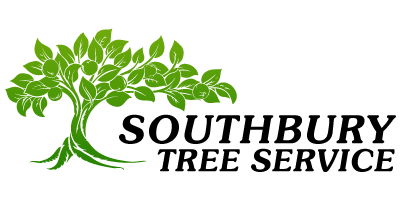Tree Health Care Services in CT
Are you trying to find health care for your tree? Are you looking for this tree service in Litchfield, CT or somewhere nearby? Possibly the most diverse selection of services we offer our client base at Southbury Tree Service is providing Tree Health Care (THC) programs that are unique to and individualized for properties. Just as no two people are the same, it stands to reason that no two trees are ever the same. And, when one of our arborists visits the property to assess tree health issues (whether for a group of trees or single trees), there begins to be a highly ordered set of steps to identify what impacts on the tree are the causal agents.
We split these agents into two categories: Abiotic and Biotic conditions
Abiotic conditions are those not caused by living agents. They may be grouped in the following manner:
- Construction damage to root systems from injury associated with severing of roots for any number of reasons
- Compaction of soil by pedestrian traffic or vehicles
- Weather events such as storms, drought, or sudden cold events
- Poor planting applications by landscapers that may have planted trees too deep or not removed the wire baskets and burlap
- Salt injury from sidewalks or road ways
- And others....
Biotic conditions are those caused by living agents such as (but not limited to):
- Viruses
- Insects, such as borers
- Bacteria
- Fungal pathogens
- Rodent damage
- New invasive (non native) insects such as the emerald ash borer or the spotted lantern fly and gypsy moth
- Deer browsing
- And many more....
Questions we ask as arborists as soon as we approach the tree are: What species is the tree? How old is the tree estimated to be? What soil conditions is the tree growing in? What past history can the customer provide for the arborist? What are the expectations of the customer from a plant health care perspective and aesthetic perspective? These are valuable questions and temper the route we take to alleviate the source of the problem from that point on.
The vast number of tools available to our industry now compared to even 30 years ago to keep trees healthy and vigorous is remarkable. It is truly unlikely that our arborist will recommend fertilization to your tree without a need based on some explicit deficiency or soil test. Prescription additions of fertilization may be suggested. And, if indeed this is the case, we often will inject the substance directly into a tree’s vascular system.
Arborists often have to rely upon a smaller set of tools that tend to treat a wider scope of challenges arising from these disorders discussed above. In that case, and for the majority of both older and newer trees, we commonly rely upon a growth regulator called Cambistat. With this compound, we can adjust tree response and tree physiology and provide the specified tree with a better opportunity to have a successful lifespan even under dire environmental conditions.
The occurrence of cyclic insect and disease complexes is by default, at least at some point in the tree’s life, consequential. All trees have some susceptibility toward disorders. And, often it is the case where we will transport samples to be sent directly to labs housed at the Connecticut Agricultural Experiment Station in New Haven, CT, where experts will provide us with more insights. If we do not know the answer, we at least know the best place to attain the information, and that’s a sign of a good arborist
Our goal is to catch problems before they get worse. It is a necessary form of teamwork that interplays between customer and arborist. The property owner’s job is to make sure we are invited on the property often to complete at least a peripheral assessment. We are not good to the tree after the damage has destroyed 60% of the crown due to negligence or ambivalence.
Let us walk the property and show you how to create long-lasting healthy landscapes.
Family-owned and operated for over 40 years, Southbury Tree Service has the right tools and breadth, and depth of knowledge to provide the best solution for your trees. Call us today at (203) 264-9937 to set up a consultation with a certified arborist! In addition to Litchfield, we also offer our tree service in Middlebury, CT and the surrounding area.
For more information about air spading service in CT, call Southbury Tree Service at (203) 264-9937.
